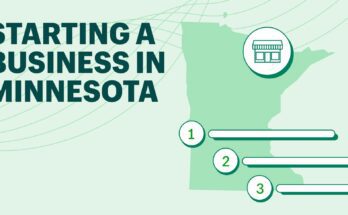Searching for a new job is always a bit daunting, but if you’re looking to combine a new job with a move to a new state, it can seem altogether overwhelming.
But it doesn’t have to be.
There are a few simple things that you can do that will make finding an out of state job as easy as can be.
Ready to find a new employer in a new town?
Here are seven ways to search for a job out of state.
Search Specialty Job Sites
Sites like Indeed are popular because they list job openings in almost every industry that exists. But you can find even more job postings in your field if you search specialty-specific job sites.
For example, Health eCareers specializes in healthcare jobs. LawJobs.com lists job opportunities in the legal profession. Dice.com provides opportunities in tech and IT.
Start your search on a job board that caters specifically to your line of work and you just might be surprised at how many opportunities you find that aren’t posted on the big job sites like Indeed.
Use a Recruiter
Recruiters are in the business of matching employees with potential employers (that’s how they get paid). Connect with a recruiter in the state you want to work in and let them know that you’re looking to make a move.
It’s in their best interest to find you the right opportunity, so they’ll do most of the hard work for you, including letting the employer know that relocation is part of your plan.
Tap Into Your Network
Let the people in your professional network know that you’re looking for work in another state. You may already have contacts, LinkedIn connections, and former colleagues that have relocated to where you want to be.
Is there a specific out-of-state employer that you want to work for?
Type the company into the LinkedIn search bar and you might already have connections there. If you don’t, send a few LinkedIn invitations to current employees and you just might be able to strike up a relationship with someone that can help you get your foot in the door.
Attend In Person or Virtual Networking Events
If you’re looking for a job in a nearby state, consider attending some in-person networking events in that state. While online connections are valuable, in-person connections can be even more beneficial.
Traveling an hour or two to attend an out of state event can be well worth the time and cost of transportation. If physical travel is impossible, look for virtual events or hybrid networking events that you can attend online.
Seek the Help of Professional Associations
Professional associations often post jobs for employers that belong to their association, so it’s always a good idea to join one or two professional associations in your field. Some even have their own employees that can assist you in finding jobs in a different state.
Joining a professional association is yet another way to build your network. It’s also a way to stay abreast of current industry trends, which can help you ace your next interview.
Research the Cost of Living
Before you start searching for jobs in a different state, research the cost of living in that region. While an out-of-state job might offer double the salary you’re accustomed to making, it could be because the cost of living is twice as high.
For example, let’s say you currently live in Tucson, Arizona and make $50,000 per year. You see a job posting for the same job in San Francisco for $75,000 per year.
That might sound like a huge leap in pay, but considering the cost of living in San Francisco, it’s not. A $50,000 per year job in Tucson should pay at least $95,000 in San Fran.
Checkout this cost of living calculator from Rent Café to do quick comparisons between where you’re currently living and where you’re considering moving for work.
Make Your Intent to Move Clear in Your Cover Letter
Your cover letter is your first and best chance to explain to a potential new employer that you’re looking to work in a different state.
Before writing a generic cover letter, research the type of information that cover letters in your industry should include. Cover letters for IT pros are different from cover letters for physicians, which are different from cover letters for creative professionals or marketing professionals or educators. Your cover letter is as important as your resume, so make sure it’s tailored to your industry as well as to your next potential employer.
In Conclusion
Searching for a new job out of state isn’t as complicated as it may seem.
Tap into your network and professional associations. Connect with professionals in your desired state. Craft a well-written cover letter that mentions your willingness to move. Search specialty job sites or use a recruiter to help you find the perfect placement.
With these tips in mind, you can find the job you’re looking for, no matter what state it’s in.



